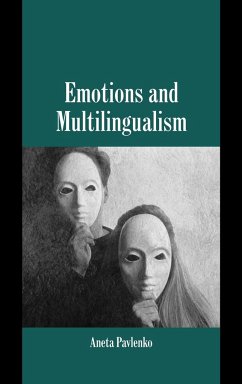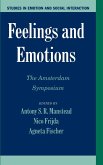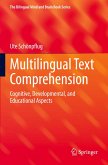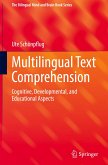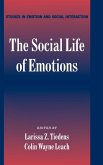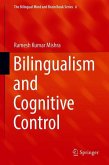Pavlenko challenges the monolingual bias of modern linguistics and psychology by bringing together insights from many different fields.
How do bilinguals experience emotions? Do they perceive and express emotions similarly or differently in their respective languages? Does the first language remain forever the language of the heart? What role do emotions play in second language learning and in language attrition? Why do some writers prefer to write in their second language? In this provocative and ground-breaking book, Pavlenko challenges the monolingual bias of modern linguistics and psychology and uses the lens of bi- and multilingualism to offer a fresh perspective on the relationship between language and emotions. Bringing together insights from the fields of linguistics, neurolinguistics, psychology, anthropology, psychoanalysis, and literary theory, Pavlenko offers a unique and comprehensive introduction to this cross-disciplinary movement. This is a highly readable and thought provoking book that draws on empirical data and first hand accounts and offers invaluable advice for novice researchers. It will appeal to scholars and researchers across many discplines.
Review quote:
'Aneta Pavlenko's book is a welcome and enriching addition to the field of bilingualism and multilingualism, addressing the topic of the relationship between emotions and multilingualism. As a first attempt to bring together these two fields, this book must be applauded as an important addition to the study of multilingualism. - this book is well-written - an updated, interesting, and integrated account of the state of the art on the interface between affect and multilingualism - as is true of every good scholarly volume, her book raises more questions than it answers and should therefore be read by all scholars of multilingualism.' Journal of Cognitive Education and Psychology
Table of contents:
Preface; 1. Languages and emotions: what can a multilingual perspective contribute?; 2. Emotions in the study of multilingualism: framing the questions; Part I. Languages of Emotions: 3. Vocal level: is the lady angry?; 4. Semantic and conceptual levels: the bilingual mental lexicon; 5. Discursive level: I feel zhalko tebia bednogo; Part II. Languages and Emotions: 6. Neurophysiological level: his coeur is where his feelings dwell; 7. Social cognition: I no longer wanted to speak German; 8. Emotions and multilingualism: an integrated perspective; Appendix A. Appendix B. References.
Hinweis: Dieser Artikel kann nur an eine deutsche Lieferadresse ausgeliefert werden.
How do bilinguals experience emotions? Do they perceive and express emotions similarly or differently in their respective languages? Does the first language remain forever the language of the heart? What role do emotions play in second language learning and in language attrition? Why do some writers prefer to write in their second language? In this provocative and ground-breaking book, Pavlenko challenges the monolingual bias of modern linguistics and psychology and uses the lens of bi- and multilingualism to offer a fresh perspective on the relationship between language and emotions. Bringing together insights from the fields of linguistics, neurolinguistics, psychology, anthropology, psychoanalysis, and literary theory, Pavlenko offers a unique and comprehensive introduction to this cross-disciplinary movement. This is a highly readable and thought provoking book that draws on empirical data and first hand accounts and offers invaluable advice for novice researchers. It will appeal to scholars and researchers across many discplines.
Review quote:
'Aneta Pavlenko's book is a welcome and enriching addition to the field of bilingualism and multilingualism, addressing the topic of the relationship between emotions and multilingualism. As a first attempt to bring together these two fields, this book must be applauded as an important addition to the study of multilingualism. - this book is well-written - an updated, interesting, and integrated account of the state of the art on the interface between affect and multilingualism - as is true of every good scholarly volume, her book raises more questions than it answers and should therefore be read by all scholars of multilingualism.' Journal of Cognitive Education and Psychology
Table of contents:
Preface; 1. Languages and emotions: what can a multilingual perspective contribute?; 2. Emotions in the study of multilingualism: framing the questions; Part I. Languages of Emotions: 3. Vocal level: is the lady angry?; 4. Semantic and conceptual levels: the bilingual mental lexicon; 5. Discursive level: I feel zhalko tebia bednogo; Part II. Languages and Emotions: 6. Neurophysiological level: his coeur is where his feelings dwell; 7. Social cognition: I no longer wanted to speak German; 8. Emotions and multilingualism: an integrated perspective; Appendix A. Appendix B. References.
Hinweis: Dieser Artikel kann nur an eine deutsche Lieferadresse ausgeliefert werden.

